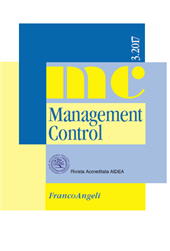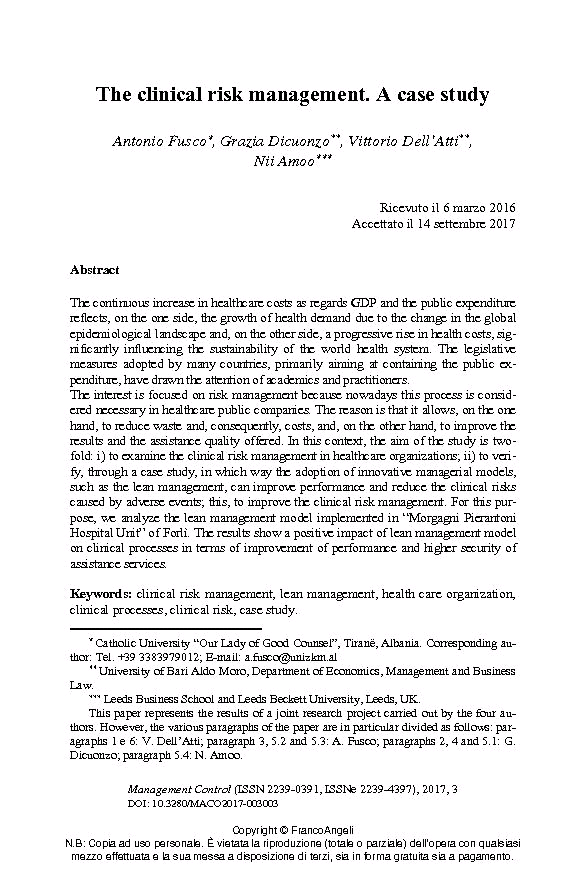The clinical risk management : a case study
31-52 p.
The continuous increase in healthcare costs as regards GDP and the public expenditure reflects, on the one side, the growth of health demand due to the change in the global epidemiological landscape and, on the other side, a progressive rise in health costs, significantly influencing the sustainability of the world health system. The legislative measures adopted by many countries, primarily aiming at containing the public expenditure, have drawn the attention of academics and practitioners. The interest is focused on risk management because nowadays this process is considered necessary in healthcare public companies.
The reason is that it allows, on the one hand, to reduce waste and, consequently, costs, and, on the other hand, to improve the results and the assistance quality offered. In this context, the aim of the study is twofold: i) to examine the clinical risk management in healthcare organizations; ii) to verify, through a case study, in which way the adoption of innovative managerial models, such as the lean management, can improve performance and reduce the clinical risks caused by adverse events; this, to improve the clinical risk management. For this purpose, we analyze the lean management model implemented in "Morgagni Pierantoni Hospital Unit" of Forlì. The results show a positive impact of lean management model on clinical processes in terms of improvement of performance and higher security of assistance services. [Publishers' text].
Forma parte de
Management Control : 3, 2017-
Artículos del mismo número (disponibles individualmente)
-
Información
Código DOI: 10.3280/MACO2017-003003
ISSN: 2239-4397
KEYWORDS
- Clinical risk management, lean management, health care organization, clinical processes, clinical risk, case study



